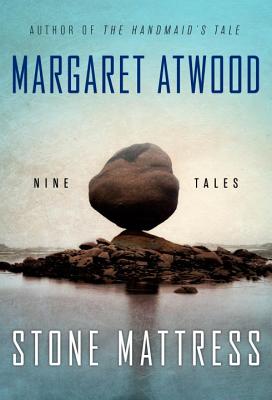Thursday, April 4, 2013
Notes from the Nightstand: The Lone Ranger and Tonto Fistfight in Heaven
I'm a fan of Sherman Alexie. I've written on this blog about his book The Absolutely True Diary of a Part-Time Indian and about Smoke Signals, the movie that is based on the short stories in The Lone Ranger and Tonto Fistfight in Heaven. He's an amazing writer and an important voice in American literature and culture. He has things to say that someone really needed to come along and say. He has important stories to tell about all of us.
Having seen Smoke Signals a couple of times and having read other work by Alexie (he publishes short fiction in the Stranger), I wasn't completely bowled over when I read this book. It felt like well-trodden ground, although I was interested to see how he put the stories together on paper rather than on screen. It's much more chopped up and jumpy than the film, of course, because there needed to be a full-length, linear narrative for a movie to make sense. The short stories contain the same characters and some scenes, but it's less concise. Given that this book was Alexie's first, I think a lot of forgiveness is in order.
One of my favorite stories was "Because My Father Always Says He Was the Only Indian Who Saw Jimi Hendrix Play 'The Star-Spangled Banner' at Woodstock." I loved the idea that Victor's father was a huge Jimi Hendrix fan because Jimi's warped, rock 'n roll version of the national anthem spoke to him as an outsider American.
"After all the shit I'd been through," my father said, "I figured Jimi must have known I was there in the crowd to play something like that. It was exactly how I felt."
The story, like most of the stories in the book, focuses on the father-son relationship, particularly when the father leaves.
On a reservation, Indian men who abandon their children are treated worse than white fathers who do the same thing. It's because white men have been doing that forever and Indian men have just learned how. That's how assimilation can work.
And yet the father and son connect through music and the stories they tell about it and the memories that are tied to it, as so many people do.
Those were the kinds of conversations that Jimi Hendrix forced us to have. I guess every song has a special meaning for someone somewhere. Elvis Presley is still showing up in 7-11 stores across the country, even though he's been dead for years, so I figure music just might be the most important thing there is. Music turned my father into a reservation philosopher. Music had powerful medicine.
As a whole, it's not a perfect book. There are noticeably weak parts jammed in between the jewels. But, if you're curious about Alexie's point of view and his style, then it's worth reading. If you haven't read anything else by him before and are looking for a place to start, it's worth reading (although I still would probably start with True Diary unless you just hate YA). Some people also just can't get into magical realism as a genre, although a lot of the stories are just really real realism, and poignantly so. If you are curious about what real Indians are like in modern day life, Sherman Alexie is the man to see. He doesn't pull any punches, fistfighting in heaven or down here in America.
Subscribe to:
Post Comments (Atom)



No comments:
Post a Comment
Note: Only a member of this blog may post a comment.